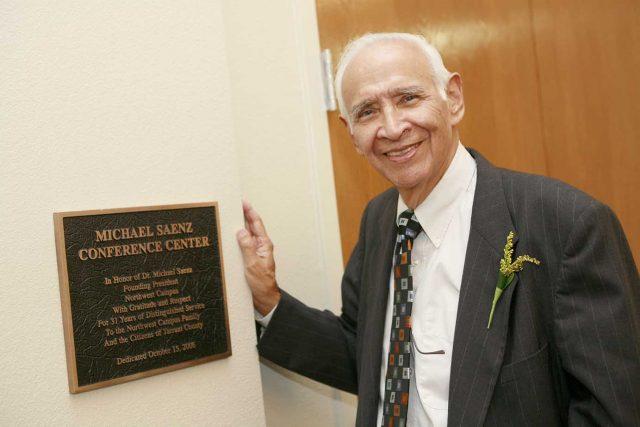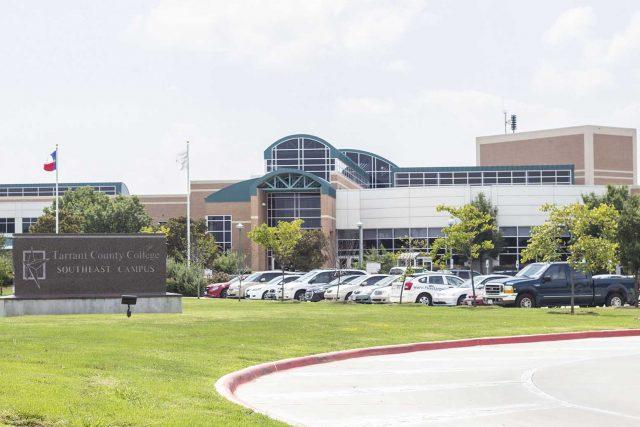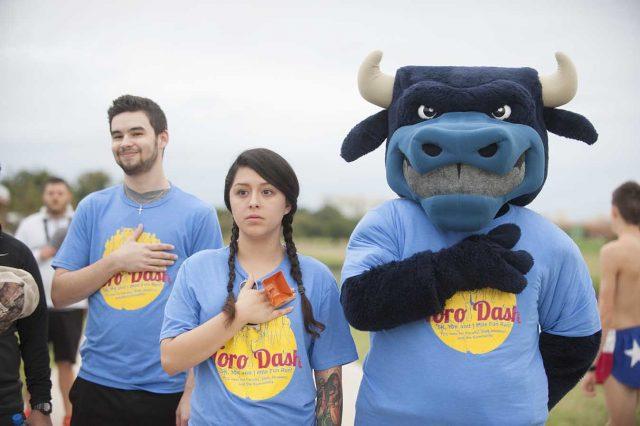By Sheri Lee Norris/ campus editor
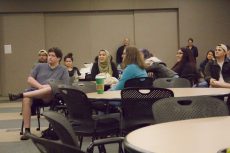
TR students were encouraged to be excited about living life to the fullest Nov. 2.
“If you aren’t excited about life and what you are doing here, ain’t nobody else gonna be,” said rapper, actor, motivational speaker and Native American activist Gary “Litefoot” Davis.
Davis believes everyone is here for a purpose and must discover what it is and go after it. That’s a traditional Native American belief that has been carried down for centuries and guides him every day.
“You have the opportunity right now, every day, to do everything possible to live your lives to the fullest because we don’t realize that life’s precious until it’s serious,” he said. “Then the fragility of what we are dealing with every day gets all too real. We aren’t guaranteed tomorrow, next week or even five years from now.”
While in high school, Davis said he believed his purpose was to play football. However, unknown to his team, he was writing mushy poems to his girlfriend, another passion that would ultimately lead him to write music, rap — specifically. As the first Native American rap artist, he wrote about his experiences in that community and hopes for the future. He next got involved in acting and has been in movies such as Indian in the Cupboard and the TV series House of Cards.
Then, he thought music was his purpose, or calling from the creator, until he stepped into the role of advocate for native peoples before Congress. While most of the elders who appeared before Congress in the past, “begged,” he said, it made him furious they were forced to beg for what was rightfully theirs.
“Native Americans are different from other minority groups in the U.S. because we are a sovereign people and our territories are recognized as separate countries within the U.S.”
He stated his frustration with the complication of dealing with the Bureau of Indian Affairs whenever the tribes want to do anything on their sovereign lands.
“Does Rome go to Spain [a foreign country] and ask if it’s OK to build a garden in front of their palace?” he asked. “No! Of course not, but we have to,” he said.
Davis now believes his purpose is to advocate for Native Americans.
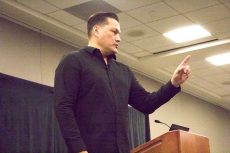
Photos by Kaylee Jensen/The Collegian
“Nobody has elected me Native American spokesman,” he said. “These views are my views from my experiences and life. I cannot claim to be a spokesman for all.”
One timely issue he brought up is the North Dakota pipeline standoff. An oil pipeline has been proposed to run north and south through the U.S. Part runs through sovereign Indian territory in North Dakota, and leaks could contaminate its water sources. Some of their ancient Indian burial grounds have been bulldozed. Davis said they are outraged and mobilized.
It is a violation of international treaties signed by the U.S. government, Davis said. The land is not theirs to build on or under. It is somewhat ironic, he pointed out, that the current discussion is about the same lands in question over 100 years ago.
The pipeline location is actually only a few miles from the location of the home fort of Gen. George Custer, who rode to Wyoming to force Native Americans off the lands granted them by the government onto reservations. The native people would ultimately be corralled and pushed onto reservations because U.S. expansion was moving west.
Treaties signed by presidents have been violated repeatedly, but the natives have been powerless to stop it — not just in North Dakota but all over the country, Davis said.
One of the problems, Davis pointed out, is logistics.
“The Indian population in the U.S. is about the size of Brooklyn,” he said. “However, if you spread all of those people out across this large country, it’s hard for any of us to get together. But, this pipeline has brought more Native Americans together for the first time in over 100 years.”
This is serious and they are ready to fight — not with guns but to try to win hearts and minds.
“Treaties are contracts, enforceable by law,” Davis said. “If one party does not fulfill its end of the contract, there are legal consequences. The U.S. government is not fulfilling its end of this contract with the Indian peoples, once again. We will fight now.”
“It’s difficult to have this conversation with American society. We have a lot of work to do and a lot of narrative to change.”
























